Euclid: Dark universe satellite launches into space
- Published
Watch: 'Dark explorer' telescope launched into space
A new satellite that will look at 10 billion years of evolution in the universe has launched.
The £1bn Euclid project is the brainchild of Hampshire professor Adam Amara and inspired by his desire to uncover the dark universe's secrets.
It was launched in Florida by Elon Musk's Space X company after 18 years of preparatory work by Prof Amara.
The launch at 16:12 BST was shown on the European Space Agency (ESA) website, external and via YouTube, external.
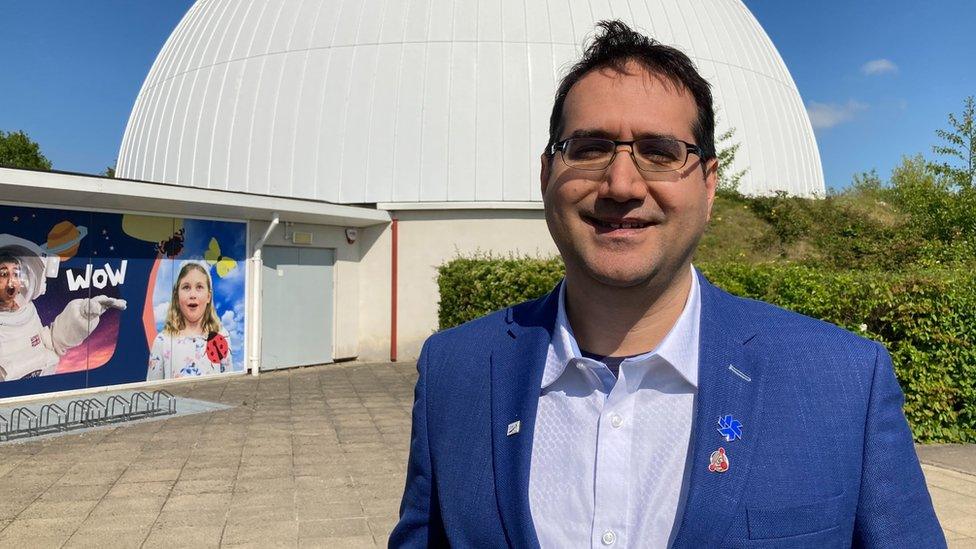
Prof Adam Amara was 25 when he decided to work on the satellite project
The professor, who is the director of the Institute of Cosmology and Gravitation at the University of Portsmouth, said only images of very small sections of the sky had been available so far.
Euclid will take high-resolution images that will cover more than one-third of the extragalactic sky outside the Milky Way.
It will also perform near-infrared spectroscopy of hundreds of millions of galaxies and stars over the same sky.
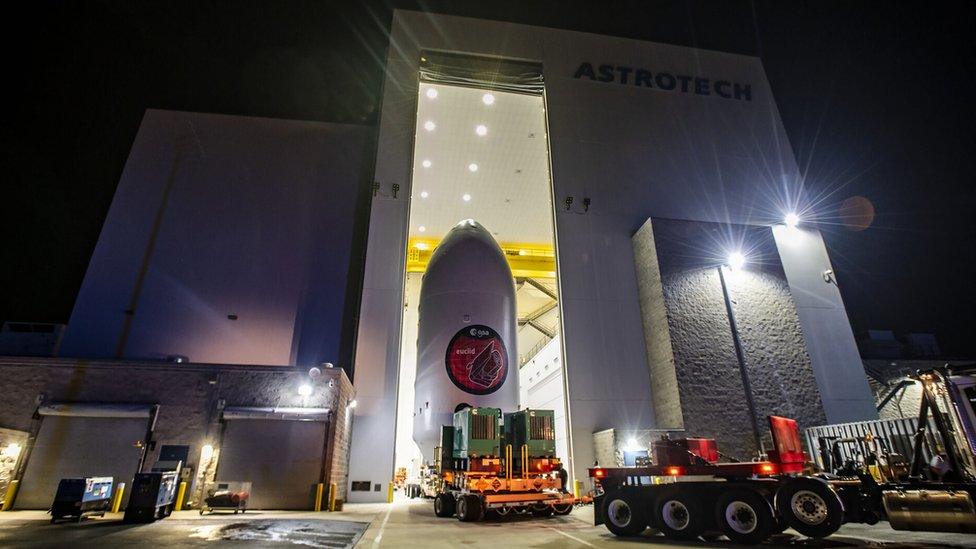
Euclid in Cape Canaveral in Florida ahead of the launch
According to the ESA, which is funding the project, the quality of the images will be "at least four times sharper than that achieved by ground-based sky surveys".
This would allow astronomers to find out more about the nature of dark matter and dark energy.
These phenomena appear to control the shape and expansion of the universe but virtually nothing is known about them.
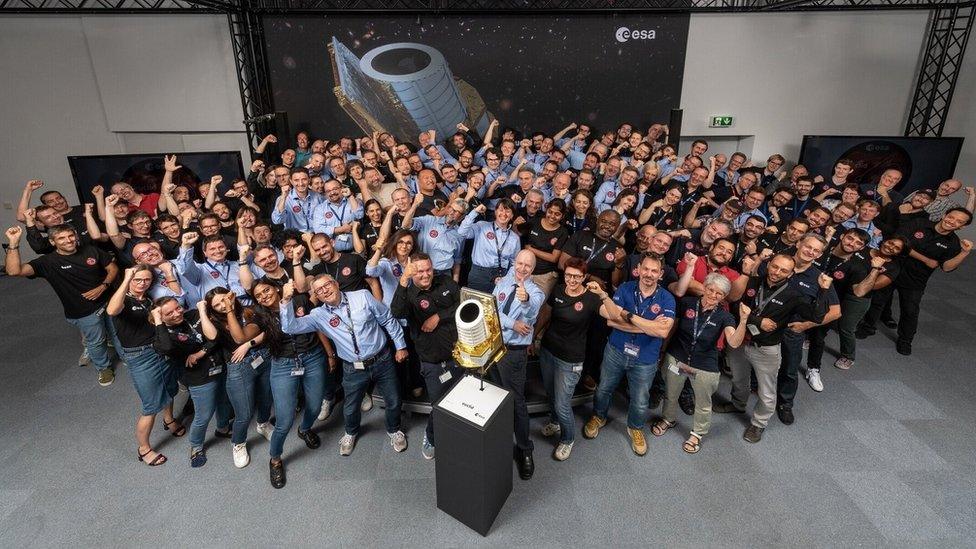
The mission control team that will fly Euclid and settle it into in space are based in in Germany

Composition of the universe
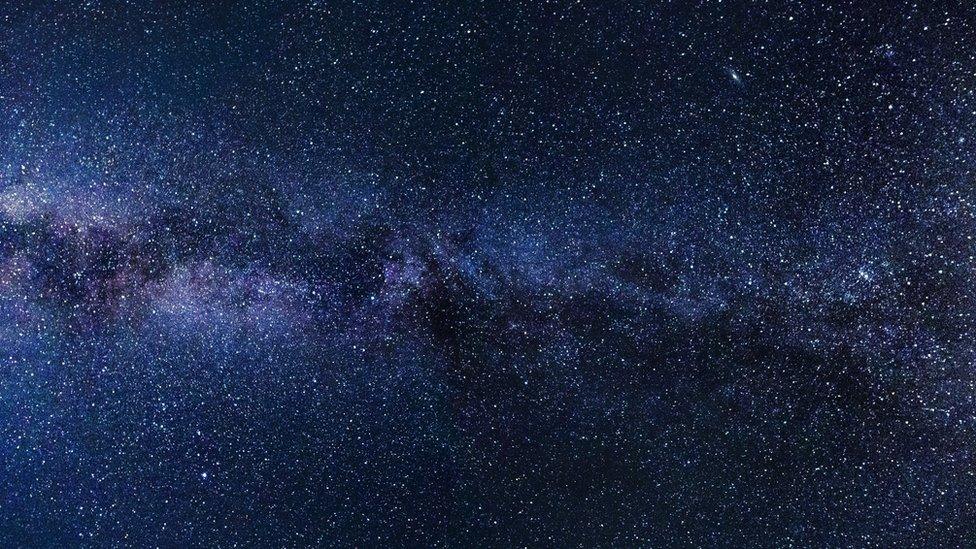
Dark matter has been described as the scaffolding on which the visible structure of the universe is hung
Experiments indicate the cosmic contents include:
Roughly 5% normal matter - atoms, the stuff from which we are all made
About 27% dark matter - so far unseen directly and defying description
About 68% dark energy - the mysterious component accelerating cosmic expansion
The universe is calculated to be 13.8 billion years old.

A total of 2,600 people from across the world have worked on the project over the past 18 years.
When asked how he would feel when the famous countdown would begin, Prof Amara told BBC Radio Solent: "I don't know.
"I've never been through anything like this. It's new. It feels scary. Celebrating, crying if it goes up, crying if it blows up. There'll be a lot of tears."

Euclid will instead take high-resolution images of the extragalactic sky outside the Milky Way

Follow BBC South on Facebook, external, Twitter, external, or Instagram, external. Send your story ideas to south.newsonline@bbc.co.uk, external.
- Published14 June 2023
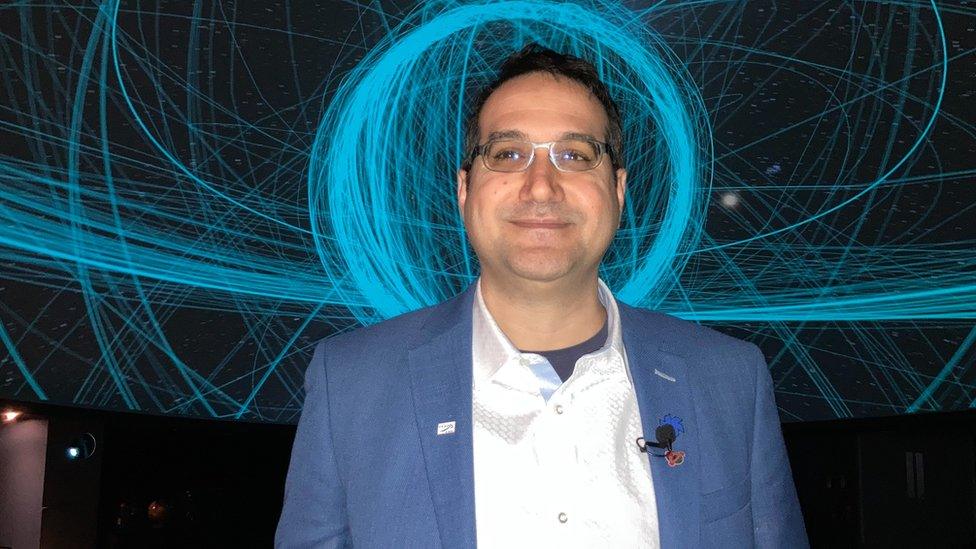
- Published20 September 2019
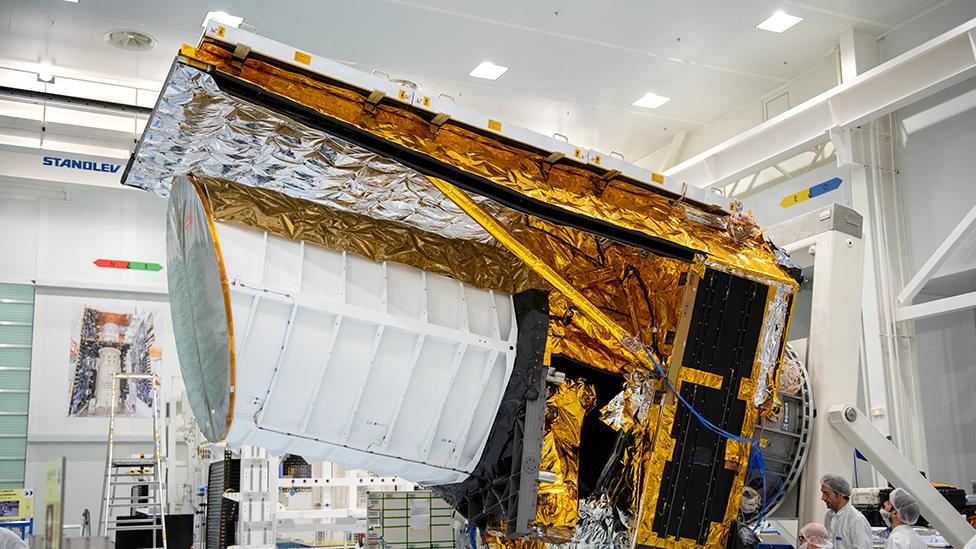
- Published11 April 2023